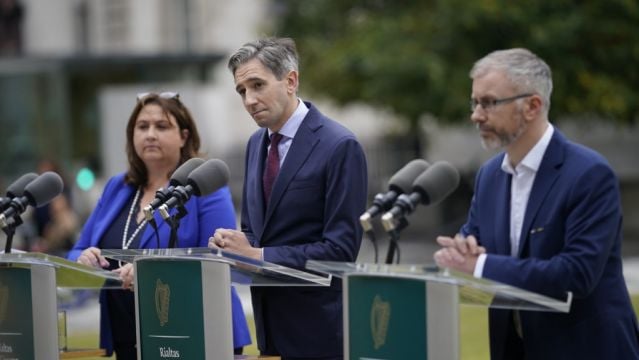The Government has published a strategy to implement “clear and simple actions” to help improve the lives of people with autism over the next 18 months.
The Autism Innovation Strategy has 83 actions under four key pillars: autism-affirming society, equality of access to public services, accessible and inclusive communities, and building capacity.
Taoiseach Simon Harris said he is “determined to make a difference” to lives of people who have autism.
Mr Harris launched the strategy alongside Minister for Children Roderic O’Gorman and Minister of State for Disability Anne Rabbitte on Monday.
Mr Harris said: “I wanted to be here today to send a message to autistic people, and indeed, to parents of autistic children, that we are determined to do more.
“We are determined to make a difference, and we’re determined to make sure that your voices are heard.
“We’re determined to work day and night, to challenge the system in many ways, to ensure that you get the services you need.”
Mr Harris described it as a “really ambitious plan”.
“Looking through it, I think there’s two things that I particularly like.
“Firstly, the fact that it has an 18-month window to deliver. So often, strategies are for five years and 10 years, and often that’s for good reason, but… this is short and sharp in terms of its determination to make a difference across 83 actions.
“Secondly, the fact that beside each action is an assigned owner, be it a department or an agency, so there’s nowhere to hide in terms of making sure that there is delivery.
“I’m also very conscious of the fact that this was not, nor should it have been, a strategy written behind the four walls here in Government Buildings or in Leinster House.
“I really want to join my colleagues in thanking all of the people who contributed to getting this strategy to this point.”
Mr O’Gorman said: “The Autism Innovation Strategy will aim to enhance the lives of autistic people across the country by tackling some of those challenges.
“It addresses fundamental areas – areas like health and social care, education, employment and community participation.
“It’s been developed with the aim of complementing Government’s broader policy on disability and in particular the forthcoming National Disability Strategy.
“By focusing on improving understanding and accommodation of the bespoke needs of autistic people in this 18-month strategy, we can ensure that mainstream services are equipped to take up that mantle going forward.
“Right now, intensive work is under way within my department to deliver the new National Disability Strategy, and that will be a really important step in terms of our implementation, in terms of our progressive realisation of the United Nations Convention on the Rights of Persons with Disabilities.
“That will also have a significant impact for autistic people, for their families and their supporters.”

Ms Rabbitte said: “Autistic people, like all of us, have a huge amount to offer, but face challenges due to the lack of awareness and understanding on a broad societal level.
“There are clear areas where improvements can be made, including in relation to the provision of public services.
“Gaps were identified in our health services and supports, access to education and employment, access to alternative communication methods, data and research, and the lack of understanding reflected in the approaches of some professionals.
“The invaluable insights we received from the contributions of the expert stakeholders has directly informed the vision for the strategy.”
AsIAm, Ireland’s autism charity, said: “We believe this marks an important milestone as we campaign for an equitable society for autistic people and families in Ireland, where we are empowered, supported and given the same chance.
“This is an important day for the autistic community.
“Since the organisation’s inception 10 years ago, we have been campaigning for a whole-of-life, neuro-affirmative strategy that breaks down silos across Government and society.”







